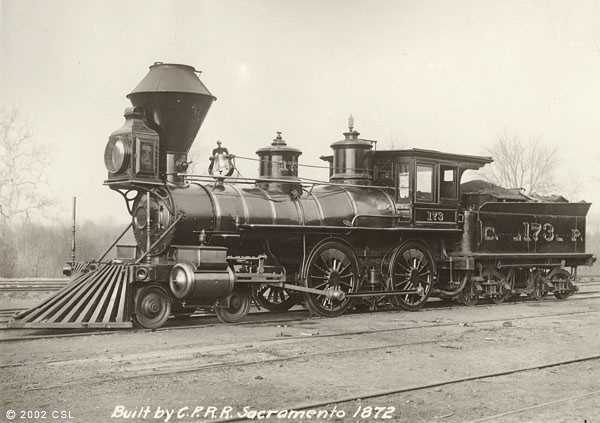Prior to the approach of the cross-country railroad, an adventure over the landmass toward the western states implied an unsafe half year trek over waterways, deserts, and mountains.To any number of dangerous illnesses in the intersection. Enthusiasm for building a railroad joining the landmass started not long after the coming of the train.
The principal trains started to keep running in America in the 1830s along the East Coast. The extension of the California region following the Mexican-American War, the disclosure of gold in the area in 1848, and statehood for California in 1850 further impelled the enthusiasm to join the nation as a great many outsiders and mineworkers looked for their fortune in the West.

Amid the 1850s, Congress supported various study gatherings to research conceivable courses for a cross-country railroad. No specific course turned into a reasonable most loved as political gatherings were part about whether the course ought to be a northern or southern one.He was so fixated on the possibility of a cross-country railroad that he wound up known as "Insane Judah." Although Judah's arrangement had justify, depreciators noticed the imposing deterrents along his proposed course, the most genuine of which was the Sierra Nevada mountain extend. A rail line worked along this course would require burrowing through rock mountains and intersection profound gorges, a designing accomplishment yet to be endeavored in the U.S.
The course had a continuous ascent and required the line to cross the summit of just a single mountain instead of two. Judah concurred and he and Strong drew up letters of fuse for the Central Pacific Railroad Company. They started looking for speculators and Judah could persuade Sacramento businesspeople that a railroad would convey genuinely necessary exchange to the zone. A few men chose to back him, including equipment distributer Collis P. Huntington and his accomplice, Mark Hopkins; dry products shipper, Charles Crocker; and discount merchant, prospective representative, Leland Stanford. These benefactors would later come to be known as the "Enormous Four."
Huntington and his accomplices paid Judah to study the course. Judah utilized maps from his review to support his introduction to Congress in October 1861. Numerous Congressmen were hesitant of starting such a costly wander, particularly with the Civil War in progress, yet President Abraham Lincoln, who was quite a while supporter of railways, concurred with Judah.
Very quickly, clashes emerged amongst Judah and his business accomplices over the development of the Central Pacific line. In October 1863, Judah cruised for New York to endeavor to discover speculators who might purchase out his Sacramento accomplices. Despite the fact that he had influenced the voyage to Panama to and over the Isthmus via prepare commonly, he contracted yellow fever amid this outing and kicked the bucket on November 2, multi week in the wake of achieving New York City. Judah did not live to see the Central Pacific start work; he withdrew Sacramento for New York fourteen days before the main rail was spiked on October 26, 1863.
Durant made the Crédit Moblier of America, a business front that seemed, by all accounts, to be a self employed entity, to develop the railroad. Be that as it may, Crédit Moblier was claimed by Union Pacific speculators and, throughout the following couple of years, it cheated the administration out of a huge number of dollars by charging extortionate expenses for the work. Since the administration paid by the mile of track constructed, Durant likewise demanded the first course be pointlessly extended, additionally filling his pockets. Not long after the finishing of the railroad, Durant's degenerate business plans turned into an open embarrassment with Congress researching Durant, as well as kindred Senators and Representatives who had profited from his shady dealings.